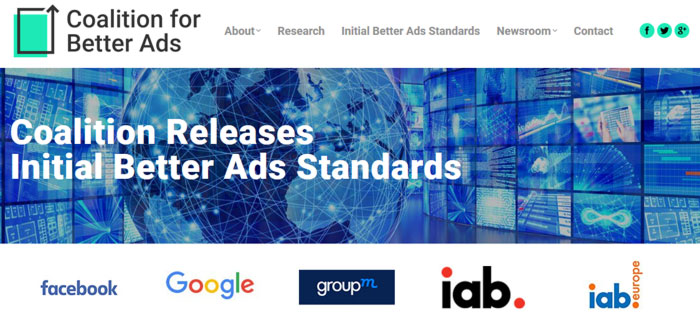Google aims to build "a better web for everyone" by reducing the "far too common… annoying, intrusive ads," that proliferate. Working alongside the Coalition for Better Ads, Google will leverage its Chrome browser to put a stop to the web advertising that irks people the most - such as pop-ups, and auto-playing audio and video adverts. The big problem is that frustratingly intrusive advertising often triggers web users to block all ads, which has a negative impact on the funding of all content creators who publish via the web.
"It's far too common that people encounter annoying, intrusive ads on the web - like the kind that blare music unexpectedly, or force you to wait 10 seconds before you can see the content on the page," wrote senior VP of Ads & Commerce at Google, Sridhar Ramaswamy, on the Google Blog. "These frustrating experiences can lead some people to block all ads--taking a big toll on the content creators, journalists, web developers and videographers who depend on ads to fund their content creation."
Ramaswamy went on to explain how Google is working with the Coalition for Better Ads and will be adhering to the group's recently announced Better Ads Standards. Google will help publishers follow the ads guidance using its new Ad Experience Report tool. The tool provides previews of your owned sites and identifies ways to find and fix any issues.

Another way that Google aims to help web publishers, who might be missing ad views due to blocking inspired by intrusive ads, is via the Funding Choices program. This beta feature allows publishers to show a customised message to those who browse their sites with ad blocking turned-on. For example it can ask users to white-list their particular site or pay for an ad-free pass via Google Contributor. Funding Choices is already available in North America, the U.K., Germany, Australia and New Zealand and will roll out to further countries this year.
In early 2018 Google Chrome will stop showing ads (including those owned or served by Google) that are not compliant with the Better Ads Standards. So, publishers have a good six months or so to sort out the ads served on their sites. Overall, Google believes its upcoming changes will help ensure all content creators can continue to sustainably fund their work with online ads.













